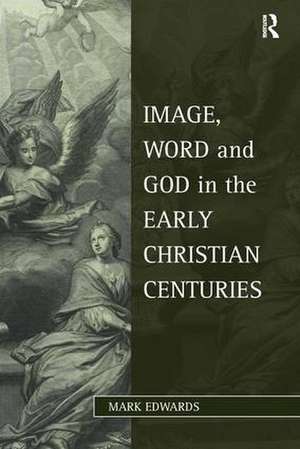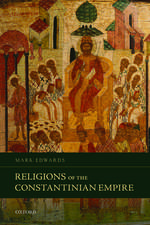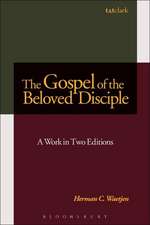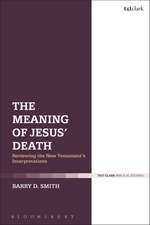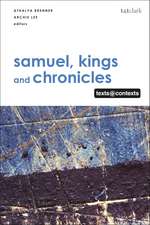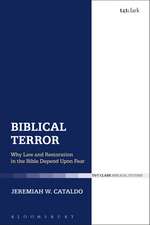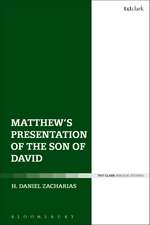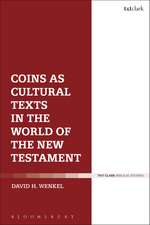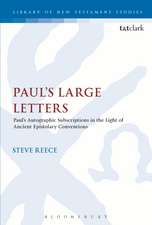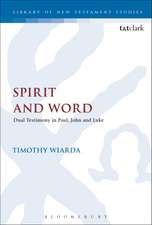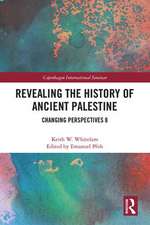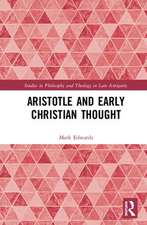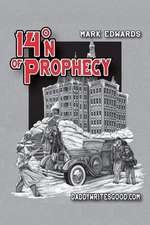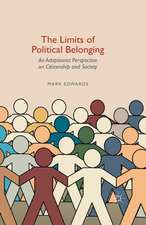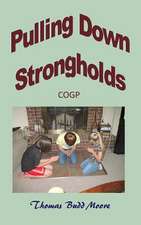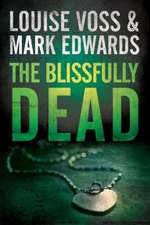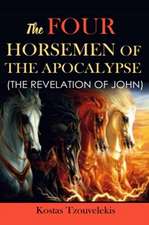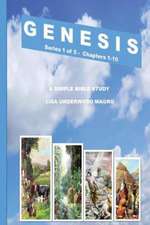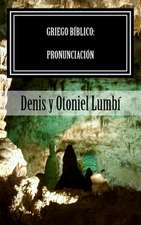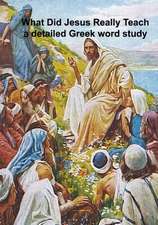Image, Word and God in the Early Christian Centuries: Studies in Philosophy and Theology in Late Antiquity
Autor Mark Edwardsen Limba Engleză Paperback – 28 ian 2013
| Toate formatele și edițiile | Preț | Express |
|---|---|---|
| Paperback (1) | 324.86 lei 43-57 zile | |
| Taylor & Francis – 28 ian 2013 | 324.86 lei 43-57 zile | |
| Hardback (1) | 821.76 lei 43-57 zile | |
| Taylor & Francis – 28 ian 2013 | 821.76 lei 43-57 zile |
Preț: 324.86 lei
Preț vechi: 379.01 lei
-14% Nou
Puncte Express: 487
Preț estimativ în valută:
62.18€ • 67.57$ • 52.27£
62.18€ • 67.57$ • 52.27£
Carte tipărită la comandă
Livrare economică 21 aprilie-05 mai
Preluare comenzi: 021 569.72.76
Specificații
ISBN-13: 9781409406716
ISBN-10: 1409406717
Pagini: 228
Dimensiuni: 156 x 234 x 20 mm
Greutate: 0.43 kg
Ediția:New ed
Editura: Taylor & Francis
Colecția Routledge
Seria Studies in Philosophy and Theology in Late Antiquity
Locul publicării:Oxford, United Kingdom
ISBN-10: 1409406717
Pagini: 228
Dimensiuni: 156 x 234 x 20 mm
Greutate: 0.43 kg
Ediția:New ed
Editura: Taylor & Francis
Colecția Routledge
Seria Studies in Philosophy and Theology in Late Antiquity
Locul publicării:Oxford, United Kingdom
Cuprins
Contents: Introduction; Seeing and hearing God in the Old Testament; Seeing and hearing God in the New Testament; Word and image in Classical Greek philosophy; Philosophers and sophists of the early Roman era; Image text and incarnation in the second century; Image, text and incarnation in the third century; Neoplatonism and the arts; Image, text and incarnation in the fourth century; Myth and text in Proclus; The Christianity of Christian Platonism; Conclusion; Bibliography; Index.
Recenzii
’An important book for anyone interested in the history and interpretation of the word from the Old and New Testaments through pagan and Christian antiquity up to contemporary debates in Barth, Derrida and others. Edwards provides an invaluable and masterly guide to the interpretation of scripture, the many contrasts between Christianity and Platonism, and the complex history of thought ranging from the Bible to Plato, Philo, Tertullian, Clement, Origen, Plotinus, Porphyry, Dionysius the Areopagite, and Augustine.’ Kevin Corrigan, Emory University, USA 'The distinctive feature of this intriguing book is the way pagan and Christian are set side by side grappling with similar questions in different ways. The meticulous exposition of key material from selected philosophers and theologians, the adamant refusal to assimilate Christian thought to Platonism, and the sharp identification of significant contrasts in the final theses is characteristic of Mark Edwards’ careful work, here as elsewhere. Without highlighting epistemology hermeneutics or revelation, he nevertheless explores the issues that lie at the heart of these subjects: the relation of seeing and hearing to what is seen and heard, and how this shapes understanding of word and image, text and incarnation.’ Frances Young, University of Birmingham, UK ’Edwards' new book is a rich and pathbreaking account of the relationship between the scriptural and incarnate Word of God and the notion of a divine image in early Christianity. Full of new insights and packed with information previously inaccessible to all but a handful of specialists, Image, Word and God will be of great interest to students in a variety of fields, ranging as it does from creation, the imago Dei, and patristic Christology to the devotional use of plastic images and the central authority and the iconic status of Scripture - all within a larger argument about the distinctiveness of early Christianity in contrast
Descriere
This book investigates the concept of logos in pagan, Jewish and Christian thought, with a view to elucidating the polyphonic functions which the word acquired when used in theological discourse. Edwards presents a survey of theological applications of the term Logos in Greek, Jewish and Christian thought from Plato to Augustine and Proclus. Bringing together materials which are rarely synthesized in modern study, this book shows how Greek and biblical thought part company in their appraisal of the capacity of reason to grasp the nature of God, and how in consequence verbal revelation plays a more significant role in biblical teaching.
